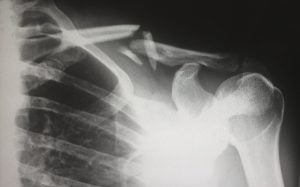
A car accident can occur anytime, causing serious injuries and damage to your car and other property. Most accidents are unforeseeable, and it is often up to you to maintain acceptable driving standards to prevent any unnecessary incidents. Unfortunately, mistakes do happen every once in a while, so it is important to know how to respond when that time comes. Here is a brief guide on what to do if you are involved in a car accident.
Safety First
Your first priority is to ensure that everyone involved in the accident is safe and to take proactive measures to prevent more accidents and injuries. If you are hurt, call for an ambulance or ask someone else to do so. If you have been seriously incapacitated, try not to move as you wait for the emergency personnel. If you are not too injured, check on the other people involved in the crash and request for emergency services as required. If possible, move the cars to the side of the road to make way for other vehicles. Ideally, you should have an emergency kit in your car containing a warning triangle or flares. Place those on the road to alert oncoming drivers of the accident.
Call the Police
Most states only require you to call the authorities after an accident if the accident is blocking traffic, someone has been hurt, or there has been significant property damage. However, you may incur an additional fine if you fail to comply with the law, so let the police determine whether those requirements have been met. Once you describe the accident, the police dispatcher will decide whether to send officers to the scene. If not, you will basically have to file an accident report either online or at the station.
Document the Accident
To protect yourself, exchange the relevant information with the other driver(s) involved in the accident, including their names and car insurance information. Take out your phone or digital camera and take photos of the scene, capturing things such as:
- License plates
- Damage to the vehicles
- Damage to other property
- Objects at the scene, for example fallen branches, skid marks, accident debris, etc.
- Landmarks to identify the location of the accident, e.g. Street signs
- Any factors that may have contributed to the accident, e.g. dysfunctional traffic lights
Once the responding officers arrive, be sure to get their names and badge numbers. If you have an accident report form, note down all the details relevant to the scene, including:
- Description of the accident
- Time and date
- Description of injuries and property damage
- Traffic and weather condition
Start the Claims Process
You typically must begin the insurance claims process within 24 hours of the accident. If possible, call your insurance agent at the scene of the incident. Depending on who is responsible for the accident, you can file either a first or third-party claim. A first party claim is the one you file with your own insurance company while a third-party claim is filed with the insurance provider of the other party. Be nice to everyone involved, but do not admit fault whatever the case. Both insurance companies will work together to determine who was at fault. An official police report will come in handy during this process, or else it is a case of he said/she said.
Being prepared is the best way to deal with a car accident. Always have a vehicle safety kit in your car and in the event of the unfortunate, contact the Tyra Law Firm as soon as possible to represent you against possible traffic violation charges.

